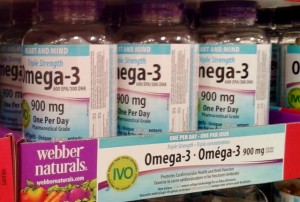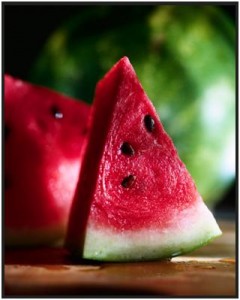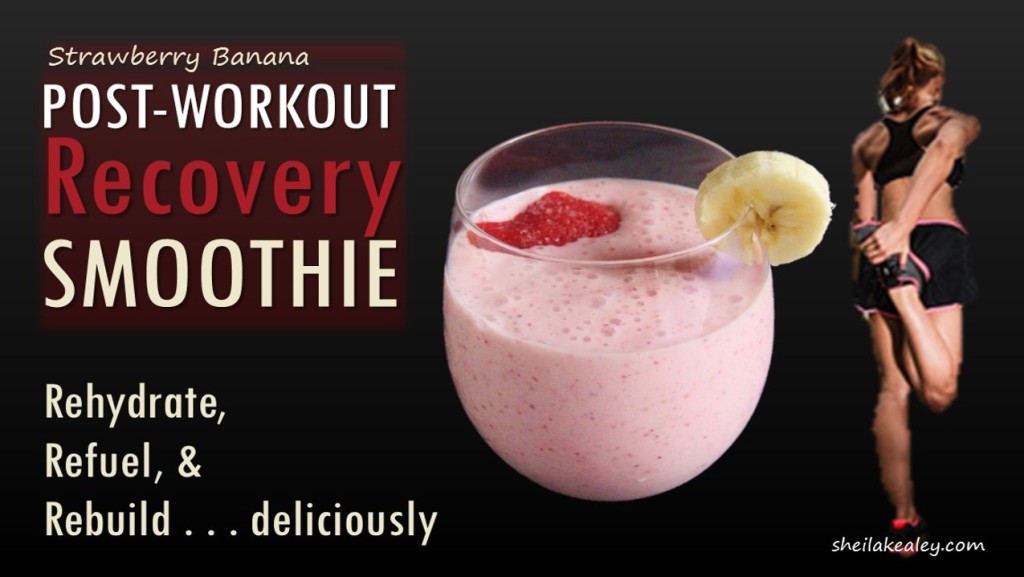This week, read about what makes us take the stairs, the science of sleep, fish oil supplements, watermelon and exercise performance, how to make exercise habits stick, understanding food expiration dates, dietary phosphates, and more.
What Makes Us More Likely to Take the Stairs?
I am a strong believer that our environment can help shape health behaviors. Research into stair usage looks at this relationship. It’s complicated: we are hardwired to find the easiest, fastest, and most efficient way to do things, which typically involves doing less work (i.e., exercise). Public health researchers are interested in promoting stair use because walking up stairs is an easy way to integrate physical activity into our every day lives. Here are some of the benefits:
- Walking up stairs burns almost 700% the number of calories burned standing in an elevator
- 2 minutes of stair-climbing/day burns enough calories to eliminate the 1 pound the average adult gains each year
- In one study, men who climbed at least 20 floors a week (about 3 floors a day) had a 20% lower risk of stroke or death from all causes
- Stair-climbing can raise good cholesterol and improve cardiovascular health
A study out this week by researchers at Concordia University in Montreal published in the journal Environment and Behavior showed that staircase location was important to increasing use. Looking at stair vs escalator use in shopping centers in downtown Montreal, they found that pedestrians were more likely to use the stairs compared to an escalator when the stairs were located far away from the escalator. (Environment and Behavior, July 2015).
 It seems location and appearance may be critical factors. Would you take the stairs more often if stairs were prominently displayed and inviting? Last August I wrote about an NPR Health feature on New York City’s Take the Stairs Campaign, which calls on architects and designers to make stairs more attractive.
It seems location and appearance may be critical factors. Would you take the stairs more often if stairs were prominently displayed and inviting? Last August I wrote about an NPR Health feature on New York City’s Take the Stairs Campaign, which calls on architects and designers to make stairs more attractive.
Stair entrances are often hard to find, sometimes behind doors labeled as fire or emergency, and even when discovered can be uninviting concrete structures. Contrast that with the sedentary option (elevators), that have shiny and inviting doors that open with a finger touch to good lighting, carpeting, and music (well, most of us could probably do without the music!). The New York campaign is part of a bigger movement called Active Design, a behavior change strategy that involves making the healthy choice an attractive and easy one.
Here’s another fun stair design to encourage physical activity (piano stairs), based on the idea that something as simple and fun can promote healthy behavior.
Fish oil pills are popular, but what does recent research say?
 Fish oil pills are one of the most popular dietary supplements in the US. Sparked by research showing that fatty fish eaters had healthier hearts, studies on healthy fish fats (Omega 3’s) began. Studies in the early 2000’s suggested that the Omega-3 fatty acids could reduce the incidence of heart disease and improve a range of health conditions. An article in the Washington Post this week looks at the evidence behind the benefits of fish oil supplements. Early research showed promise, which started a booming fish-oil market. The most recent studies, however, paint a different picture, showing that the evidence for benefits from these supplements for cardiovascular disease is weak. (The Washington Post)
Fish oil pills are one of the most popular dietary supplements in the US. Sparked by research showing that fatty fish eaters had healthier hearts, studies on healthy fish fats (Omega 3’s) began. Studies in the early 2000’s suggested that the Omega-3 fatty acids could reduce the incidence of heart disease and improve a range of health conditions. An article in the Washington Post this week looks at the evidence behind the benefits of fish oil supplements. Early research showed promise, which started a booming fish-oil market. The most recent studies, however, paint a different picture, showing that the evidence for benefits from these supplements for cardiovascular disease is weak. (The Washington Post)
Some of the recent studies showing no benefit or harm to fish oil supplements include a study in the New England Journal of Medicine showing that omega-3 supplements didn’t reduce heart attacks, strokes, or deaths from heart disease in those with risk factors for heart disease, and another study in the Journal of the National Cancer Institute showing that fish oil increased prostate cancer risk.
Research hasn’t confirmed that the benefits of eating fish and seafood come from the Omega-3 fats. It’s quite possible that your body needs the entire complement of nutrients, minerals, other fats in fish, rather than simply the Omega-3’s. This adds to the evidence showing us that we should seek out our nutrients from foods and not isolated supplements. Supplements are no substitute for the abundance of nutrients you get from a diet rich in vegetables, fruits, legumes, nuts, seeds, and whole grains.
Something I learned this week . . . Oliver Sacks, famous neurologist and author ( Awakenings, The Man Who Mistook His Wife for a Hat, and many more great books) was a weightlifting champion named “Dr Squat.” (Brainpickings).
 The Science of Sleep. Maria Konnikova has written an excellent 3-part series of the science of sleep.(The New Yorker)
The Science of Sleep. Maria Konnikova has written an excellent 3-part series of the science of sleep.(The New Yorker)
- Falling asleep – what happens when you fall asleep?
- Sleeping & dreaming – why do we need to sleep?
- The walking dead – the consequences of lack of sleep
Study shows best way to make exercise habit stick. The most consistent exercisers have made working out a specific habit that they don’t have to think about, like brushing your teeth. Repetitive behaviors tended to reinforce the exercise habit and act as cues. (Time, reporting on Health Psychology, July 2015). Don’t overthink it – just move (and do it again the next day)!
 Watermelon compound may boost exercise performance. Alex Hutchinson reports on a recent study suggesting that L-citrulline, a compound found in watermelons, may boost exercise performance in a manner similar to the nitrates in beet juice. (Runner’s World, reporting on Journal of Applied Physiology, May 2015)
Watermelon compound may boost exercise performance. Alex Hutchinson reports on a recent study suggesting that L-citrulline, a compound found in watermelons, may boost exercise performance in a manner similar to the nitrates in beet juice. (Runner’s World, reporting on Journal of Applied Physiology, May 2015)
The research is very preliminary, but there are many good reasons to consume watermelon! Beyond the refreshing taste, it is rich in vitamins and minerals, and other studies have found health benefits. For example, recent research has shown that L-citrulline or watermelon might help relieve sore muscles, and help lower blood pressure.
Extreme Eating Awards 2015 – restaurant meals to avoid. The Center for Science in the Public Interest unveils the 9 worst chain restaurant meals. Most of these meals have > 2000 calories. The Cheesecake Factory’s Warm Apple Crisp wins for the worst dessert, with almost 1800 calories. (CSPI)
One Simple Way To Reduce Social Anxiety. This study, conducted by researchers at the University of British Columbia, showed that small acts of kindness can reduce social anxiety. (The Science of Us)
How closely should food expiration dates be followed? Expiration dates can be confusing! The New York Times offers some good advice.
Women’s World Cup: Why are there so few female coaches? A look at an issue common to most sports. (BBC)
Is phosphate the next sodium? A new study will investigate the potential harms of excess dietary phosphate. Phosphates are added to processed foods to improve taste, appearance & shelf life. Limit the processed foods you eat, and you will consume fewer phosphates. (Medical Express)
New Recipe – Recovery Smoothie
Recovery is when you reap the benefits of your training and racing and get stronger, and what you eat can play an important role in the process. Consuming the right foods can help you maximize your training gains, speed up the recovery process, and enhance subsequent performance. Best of all, many delicious foods fit the bill for optimal recovery fuel. This Strawberry Banana Smoothie is quick and easy to make, without hard-to-find ingredients or protein powders.
_____________
- Dali Stairs Photo by rleigh [CC BY-NC-ND 2.0]
Share This:
